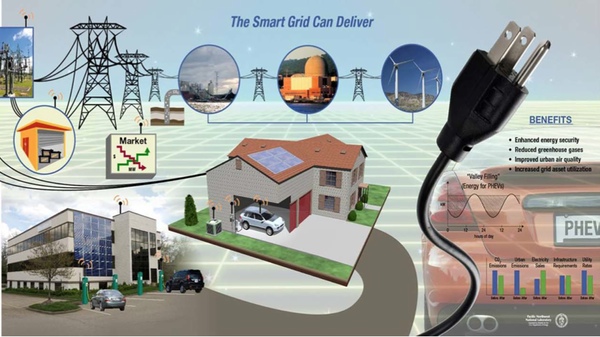- Paul Gallant
CBC News -

Do you want your fridge talking about you behind your back?
With the rapid adoption of a North American "smart grid" aimed at helping consumers conserve electricity, it's also possible that smart appliances will be able to transmit information about their activities (and yours) through the power lines. Your electricity utility may not yet be able to determine when you snack, do laundry or shower, but privacy advocates are sounding the alarm that systems need to be put in place to guard details about a household's electricity usage from prying eyes.
A paper released last November by the Office of the Information and Privacy Commissioner of Ontario and the U.S.-based Future of Privacy Forum proposes building privacy controls right into the smart grid before the system is fully rolled out.
'The Smart Grid will enable third parties to peer into your home. You can imagine how tempting the marketing opportunities will be.— Ontario Privacy Commissioner Ann Cavoukian
Although different utilities define the smart grid in different ways, the key feature is a two-way communication system between a household's meter and the electricity utility so that energy consumption can be tracked with incredible — sometimes even minute-by-minute — detail.
"The Smart Grid will enable third parties to peer into your home," says commissioner Ann Cavoukian. "You can imagine how tempting the marketing opportunities will be."
So-called smart meters are the first step in creating a smart grid. In Canada, Ontario has been first off the mark. The province has already installed 1.1 million smart meters and plans to have one in every household by the end of 2010. In the U.S., Boulder, Colo., has taken the lead to become the first city with smart meters for every customer.
"Our expectation is that this network will be 100 or 1,000 times larger than the internet," Marie Hattar, vice-president of marketing at U.S.-based Cisco Network Systems Solutions, said when the company announced last year that it intended to make communication equipment for the smart grid. "If you think about it, some homes have internet access, but some don't. Everyone has electricity access — all of those homes could potentially be connected."
Read all of it.
No comments:
Post a Comment